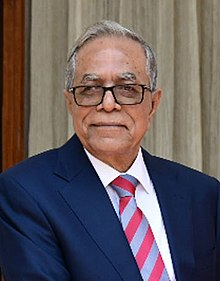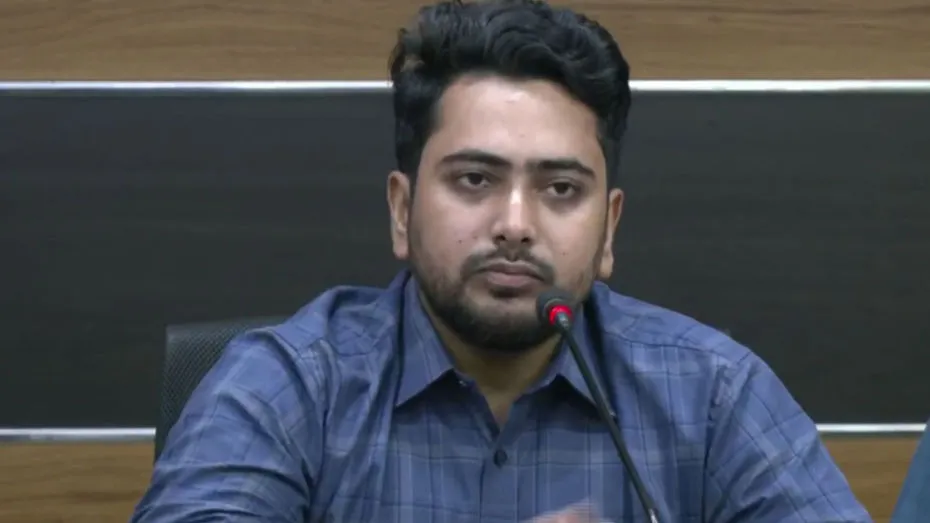Mohammad Abdul Hamid

Mohammad Abdul Hamid
Mohammad Abdul Hamid: An Inheritance of Dedication and Leadership
Renowned political person from Bangladesh, Mohammad Abdul Hamid most famously serves as the President of Bangladesh from 2013 to 2023 Stability, political experience, and adherence to democratic value defined his career. Having been a valued parliamentary leader and long-time member of the Awami League he was instrumental in the running of the nation. This paper investigates his political career, contributions, leadership approach, and general influence on Bangladesh.
Early Years and Political Travel
- Born in Kishoreganj, Bangladesh on January 1, 1944, Mohammad Abdul Hamid got early political interest. Originally a active participant in student politics he later joined the Awami League, a party instrumental in the nation’s freedom.
- Once he was elected as a Member of Parliament (MP) in 1970 representing Kishoreganj-5, his political path acquired impetus. He kept running several times as an MP, proving great public support and leadership ability. He held several roles in the Awami League over years and gained recognition for his loyalty to the party, strong political awareness, and dedication to public service.
Speaker of the Parliament
- Abdul Hamid was the Speaker of the Jatiya Sangsad (Bangladesh Parliament) from 2009 to 2013 before assuming presidency. He was very important as Speaker in keeping parliamentary discipline, preserving democratic values and guaranteeing seamless legislative processes.
- One of his strongest suit was his neutral and balanced attitude to Parliamentary debate and discussion. Though he was a devoted member of the Awami League in power, he made sure that opposing party voices were heard, therefore ensuring more inclusive and democratic the parliamentary process.
Presidency and Highlights
- Following the death of President Zillur Rahman, Mohammad Abdul Hamid was sworn in as Bangladesh’s 20th President on April 24, 2013 Later on in 2018, he was re-elected, so ranking as Bangladesh’s longest-serving President in history.
- In Bangladesh’s legislative system, he essentially fulfilled a ceremonial function during his two terms in office. Still, he made major contributions to political stability, national unity, and diplomatic relations.
- although his experience, wisdom, and calm leadership helped Bangladesh negotiate political challenges and preserve steady governance, his symbolic position was rather symbolic.
Leadership Style and Public Image
- Known for his humble and down-to-earth attitude is Mohammad Abdul Hamid. Unlike many political personalities, he concentrated on duty and service and avoided needless controversy. Both politicians and public liked him because of his sense of humor and people-connecting skills.
- His decades of political experience helped him to manage sensitive national issues with diplomacy and maturity. Often stressing the idea of freedom, independence, and national unity, he was also much admired for his dedication to the values of the Liberation War of 1971.
criticism and restrictions
- Although he was much revered, some detractors contend that his presidency lacked substantial initiatives outside of ceremonial responsibilities. Bangladesh uses a parliamentary system, hence the President has little executive authority that might have reduced his capacity to influence significant policy decisions.
- Furthermore, some opposition parties felt he might have more effectively moderate political conflicts, particularly in times of political turmoil. Still,
Final Decision
One legacy of Muhammad Abdul Hamid is dedication, experience, and stability. Having been Bangladesh’s longest-serving President and a long-serving politician, he made a major contribution to the political continuity of the nation. Respected throughout Bangladesh’s history, his calm leadership, deep-rooted political expertise, and dedication to national unity helped to define the country.
Rating: Would I advise researching his leadership style? His career provides insightful teachings on political experience, humility, and the need of stability in governance.



